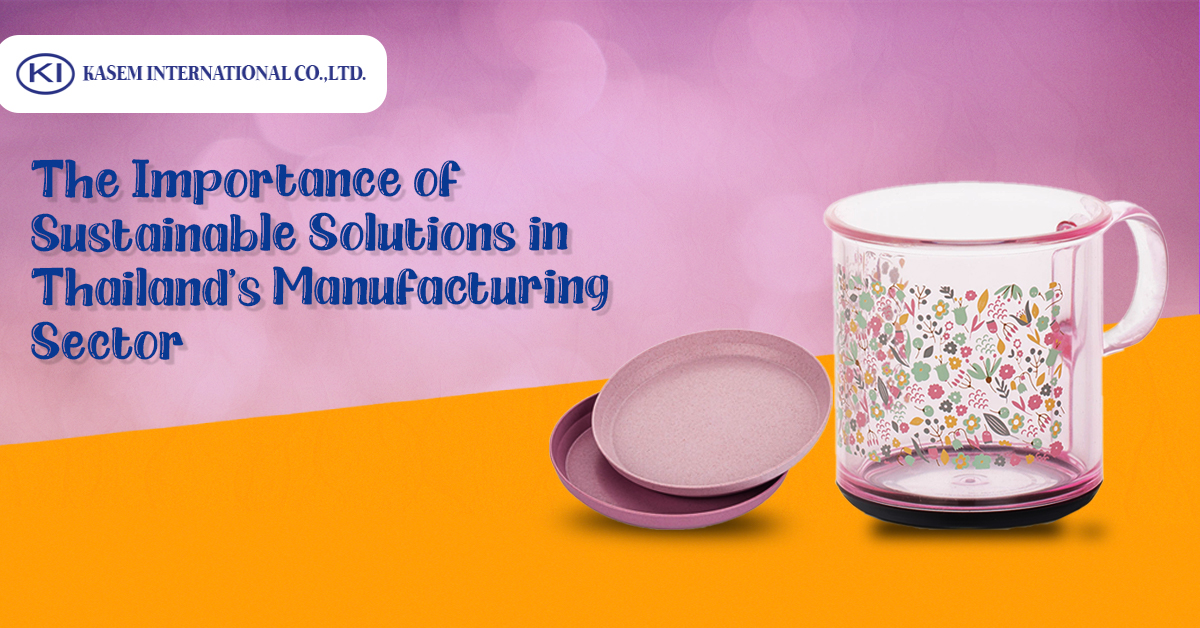

The Importance of Sustainable Solutions in Thailand’s Manufacturing Sector
Global warming and climate change have become urgent challenges, leading to natural catastrophes that disrupt lives and economies across the world. The frequency of extreme weather events, rising sea levels, and the degradation of natural ecosystems underscore the need for sustainable solutions in Thailand.
This article highlights the importance of Sustainable Solutions in Thailand and its manufacturing sector, particularly through the lens of baby product manufacturing.
Understanding Sustainable Solutions and Their Importance
Sustainable solutions in Thailand refer to practices and technologies designed to minimise environmental impact while ensuring the longevity of resources for future generations.
As we confront a world increasingly strained by overconsumption and environmental degradation, the adoption of sustainable practices in manufacturing become crucial.
These solutions encompass a wide range of strategies, from reducing energy consumption to utilizing renewable resources, all aimed at fostering a more resilient and less harmful industrial landscape.
Key Benefits of Adopting Sustainable Solutions in Thailand’s Manufacturing Industry
1. Renewable Energy Thailand:
Utilising renewable energy Thailand sources reduces reliance on fossil fuels, thereby lowering greenhouse gas emissions and combating climate change.
2. Green Technology Thailand:
Adoption of green technology Thailand in manufacturing processes enhances efficiency, reduces waste, and mitigates harmful environmental impacts.
3. Eco-Friendly Initiatives Thailand:
Implementing eco-friendly initiatives Thailand and practices, minimises the ecological footprint, promoting a cleaner, healthier environment for future generations.
4. Sustainable Agriculture Thailand:
Integrating sustainable agricultural Thailand practices within manufacturing helps maintain the health of natural ecosystems while supporting local communities.
5. Waste Management Thailand:
Efficient waste management Thailand reduces the strain on landfills and lowers pollution levels, contributing to a cleaner environment.
6. Solar Power Thailand:
Harnessing solar power Thailand provides a renewable, abundant source of energy that can significantly cut down on carbon emissions.
7. Environmental Conservation Thailand:
Manufacturing practices prioritize environmental conservation Thailand. This helps preserve biodiversity and protect vital ecosystems.
8. Climate Action Thailand:
By actively working to reduce emissions and enhance sustainability, manufacturers contribute to global climate action Thailand efforts.
9. Sustainable Urban Development Thailand:
Sustainable manufacturing supports sustainable urban development Thailand that is environmentally responsible and resource-efficient.
10. Carbon Reduction Thailand:
Implementing strategies to reduce carbon emissions is crucial in mitigating the impacts of climate change. This way carbon reduction Thailand takes place.
Kasem International’s Commitment to Sustainability in Baby Product Manufacturing
Kasem International, a leading manufacturer of baby products in Thailand, has embraced sustainable solutions to produce safe, eco-friendly products. The company has integrated several key initiatives across its operations:
Renewable Energy:
Kasem International has invested in renewable energy sources like solar power to reduce reliance on non-renewable energy.
Green Technology:
By utilizing advanced green technologies, the company has significantly reduced its environmental impact during production.
Eco-Friendly Initiatives:
The adoption of eco-friendly practices ensures that every product is made with minimal harm to the environment.
Sustainable Agriculture:
Kasem International supports sustainable agriculture by sourcing materials that are grown and harvested in an environmentally responsible manner.
Waste Management:
The company has implemented efficient waste management systems to ensure minimal waste generation and optimal recycling.
Solar Power:
Solar energy is a primary source of power in Kasem’s manufacturing processes, highlighting their commitment to renewable energy.
Environmental Conservation:
Kasem International prioritizes conservation efforts, ensuring that their operations do not disrupt local ecosystems.
Climate Action:
The company actively works to reduce its carbon footprint through various initiatives.
Sustainable Urban Development:
Kasem supports urban development that prioritizes sustainability, ensuring that their manufacturing plants contribute positively to their surroundings.
Carbon Reduction:
The company has successfully reduced its carbon emissions by adopting sustainable manufacturing practices.
Conclusion
Incorporating Sustainable Solutions in Thailand and its manufacturing sector, especially in the production of baby products, is crucial for the environment and society. Kasem International is leading by example, ensuring that their products, including feeding bottles, pacifiers, and tableware, are made without compromising safety standards.
Their website offers a variety of eco-friendly baby products, emphasizing their commitment to sustainability. Through these efforts, Kasem International not only supports environmental conservation but also provides a model for other manufacturers to follow in the journey toward a sustainable future.

 August 14, 2024
August 14, 2024